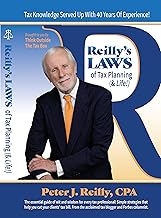Photo credit Oscar Roberto Martinez Lopez.
This was originally published on PAOO on September 3rd, 2010. You can see in this post some of the early development of Reilly’s Laws of Tax Planning.
I’ve been struggling with the title for this particular post. “Sometimes You Should Just Pay The Taxes” seemed apt, but I’ve used that title not that long ago. My method of gathering material for the blog presents the danger of developing a jaundiced view toward aggressive tax planning. Studying original source material can overemphasize the plans that go astray. Even a taxpayer victory in Tax Court is not something to be envied.
Nonetheless, we used to have a saying “Pigs get fed. Hogs get slaughtered.”. I tried to research the origin of the expression and the claims of origin I found all post dated my first exposure to it. As one of my partners commented we really had no idea if there was any agricultural reality to the expression. Unlike some other expressions (“Same difference” “No harm. No foul.”), though, I had a pretty clear idea of the inherent advice. It was that you should be aggressive, but not too aggressive. At the time I was working for somebody named Cohan and I was actually surprised to find that the Cohan Rule was named for somebody else.
Nowadays the way you tell if somebody was way too aggressive is when the penalties get piled on and are sustained by the tax court (Of course there are the people who are deprived of their liberty, but what they do has to have some characterization beyond aggressive). Lizzie W. Calloway, et vir. v. Commissioner, 135 T.C. No. 3 makes for an interesting story in this regard.
Albert Calloway (he’s the et vir.) owned stock in IBM with relatively low basis. Rather than sell the stock, he entered into an agreement with Derivium Capital LLC which offered to loan him 90% of the value of the stock. The stock was to serve as collateral . In three years Mr. Calloway could pay off the loan with interest and reclaim the stock – or not.
At the end of the day, the tax court ruled that the transaction was not really a loan. What is interesting though is that the tax court decision was not unanimous at least in its reasoning. The problem that they had with the transaction is that Derivium didn’t actually hold the IBM stock. It immediately sold it. The proceeds of the “loan” were not determined by a valuation of the stock when it was delivered. Rather it was 90% of the proceeds that Derivium received from selling it.
There is a long complicated analysis that brings the court to conclude that the transaction was not really a loan. What I find most significant is that even the judges who did not agree with the analysis agreed with the deficiency and the penalties. Their reasoning was that the taxpayer did not act like it was a loan. They did not recognize as income the supposed IBM dividends that were being applied to the supposed interest charges. Most significantly, when the three years elapsed they did not recognize the sale or income from the discharge of indebtedness.
The IRS likes to win when they go in to tax court. So they pick on people with the worst facts. The transaction was probably not such a hot idea to begin with, but once adopted, it should have been followed through in detail, meticulously.
The one thing that really troubles me about this case is the numbers. The Calloway received $93,586.23 for IBM stock in which they had $21,171 in basis. The deficiency in tax (before considering interest and penalties) was $30,911. It was a 2001 case and although not explicitly stated it seemed that it was a long term gain. I’ve decided to move on, but if someone can figure out the mystery, post a comment.































































































